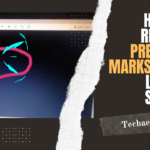Yes. Numerous laptop and battery manufacturers use lithium-ion batteries because they are lightweight and thin.
These batteries are not only more efficient than the previous models, but they also last longer.
They are also safer because they don’t overcharge and have a shallow risk of fire and explosion. Before dying, a lithium battery can withstand 300–500 charges.
They are also considered environmentally friendly because they don’t contain any potentially dangerous materials like lead or mercury.
This post will cover how to use and maintain lithium-ion laptop batteries over their lifetime.
Contents
- 1 What are Laptop Chargers?
- 2 The Basic Concept of the Power Behind the Charge
- 3 What are Lithium Batteries?
- 4 Why Lithium Batteries?
- 5 What Types of Batteries are in Laptop Charger
- 6 What Type of Lithium Battery is Used in Laptop
- 7 How do I Know if my Laptop Has Lithium Batteries?
- 8 How are Lithium Batteries Different From Normal Battery
- 9 Pros and Cons of Lithium Batteries
- 10 Conclusion
- 11 FAQ’s
What are Laptop Chargers?
To provide electrical energy to recharge laptop batteries, laptop chargers are necessary power accessories.
These chargers transform alternating current (AC) from outlets into direct current (DC) appropriate for laptop use.
They usually comprise a power brick and a detachable cable. Frequently, they have particular connectors that work with different types of laptops.
Laptop chargers, which serve as an essential connection between portable computers and the electrical grid, guarantee that laptops are powered and functional, which is vital for sustaining continuous productivity.
The Basic Concept of the Power Behind the Charge
To completely comprehend the principles and applications of electrical charges, one must have a solid understanding of this idea.
● Electric Fields
Understanding the power of a charge requires an understanding of electric fields.
An electric field is the force per unit charge acting on a charged particle.
This indicates that an object experiencing a charge will encounter a force due to the interaction between the charge and the electric field when placed in an electric field.
● Coulomb’s Law
Coulomb’s law is a fundamental principle in electrostatics that explains the force between two charged particles.
It asserts that the force among two charges is inversely proportional to the square of their distance apart and directly relates to the product of their magnitudes.
This indicates that more considerable charges act on each other with a more potent force and that the force decreases as the distance between them increases.
● Electric Potential
The energy per unit charge of electric potential at a specific point in an electric field is known as electric potential.
It is measured in volts (V) and goes by voltage.
Differences in electric potential cause forces and charges to flow because charged particles naturally gravitate towards areas with higher potential than those with lower potential.
What are Lithium Batteries?
Utilizing lithium’s unique qualities as the lightest metal available, lithium batteries are a form of rechargeable battery technology.
The anode material of lithium batteries is metallic lithium. Due to their high cost per unit and high energy density, they are distinct from other batteries.
The most widely used type of lithium battery is the lithium-ion battery, which functions on the principle of intercalation and deintercalation of lithium ions from a positive and negative electrode material.
Why Lithium Batteries?
Lithium-ion batteries offer more excellent battery life in a lighter package due to their higher power density, longer battery life, and faster charging than traditional battery technology.
They can serve you better if you have a little understanding of how they operate.
What Types of Batteries are in Laptop Charger
Nickel-cadmium, nickel metal hydride, and lithium-ion batteries are the three types of batteries that are frequently used for laptops.
● Nickel Cadmium (Ni-Cd)
For many years, Nickel Cadmium (Ni-Cd) batteries were the industry standard; however, they are no longer used in new laptops and are considered outdated technology.
They are heavy and highly susceptible to the “memory effect”.
A NiCd battery that hasn’t been wholly depleted “remembers” its previous charge and keeps it there the next time it’s used.
The memory effect, which can permanently shorten your battery’s lifespan or even render it inoperable, is brought on by crystallizing substances in the battery.
It can be prevented by fully draining and recharging the battery at least once every few weeks.
This battery should always be recycled or disposed of appropriately because it contains hazardous cadmium.
● Lithium Ion
The new benchmark for portable power is lithium-ion or Li-ion.
The energy output of Li-ion batteries is equal to that of NiMH batteries, but they are 20%–35% lighter.
Unlike their NiMH and Ni-Cd counterparts, they do not experience the memory effect to the same extent.
Their compounds pose no threat to the 0. Lithium batteries need special handling because of how easily they ignite.
● Nickel Metal Hydride (Ni-MH)
Ni-MH (nickel metal hydroxide) batteries are a cadmium-free substitute for NiCad batteries.
They require less conditioning and upkeep because they are less susceptible to the memory effect than NiCd.
They need to work better in rooms with extremely high or low temperatures.
Furthermore, they still need to be fully recycled despite using fewer hazardous materials (i.e., no heavy metals).
What Type of Lithium Battery is Used in Laptop
Lithium-ion (Li-ion) batteries are the kind of lithium batteries found in laptops.
This kind of battery utilizes an anode made of carbon and a cathode made of a compound including lithium.
Lithium salts and organic solvents usually make up the electrolyte, which permits ion transport across the electrodes.
Li-ion batteries’ charging dynamics—or how they manage the charge and discharge procedure—are one of their key features.
This covers things like performance and voltage regulation and how they tend to charge cycles.
The maximum voltage that can be applied to a battery without causing damage is determined by voltage regulation, which is a crucial component of battery charging.
Although 4.2 V per cell is usually the suggested charging voltage for Li-ion batteries, overcharging can cause the battery to overheat and possibly damage it.
Most laptops use a charging circuit to avoid this; it manages voltage and stops charging when the battery is fully charged.
Li-ion batteries perform well because of their high energy density, which allows them to store a lot of energy in a small package.
They are, therefore, perfect for use in laptops with limited space. However, age, temperature, and usage habits can impact how well they perform.
It is important to remember that the battery’s capacity will diminish with time, and it will not retain a charge for as long as it did when it was first purchased.
How do I Know if my Laptop Has Lithium Batteries?
Here’s how to determine whether the lithium-ion battery in your laptop is:
Try searching for technical details or product information for your particular model on the manufacturer’s website if you’re still looking for information regarding the battery in your laptop.
This should demonstrate to you clearly whether the battery in your laptop is lithium-ion.
● Look at the Documents
The best source of information about the battery is the documentation that came with your laptop. This could be a list of technical specifications, a user manual, or warranty information.
Anywhere it is mentioned, you must be able to identify the kind of battery.
● Check the Real Battery
If all else fails, you can find information by looking at the battery.
A label or sticker indicating the type of battery and its capacity is commonly found on lithium-ion batteries.
The battery may have these details on one or both of its sides.
How are Lithium Batteries Different From Normal Battery
Lithium batteries have a different chemistry than lead-acid or alkaline batteries.
Lithium batteries have a higher energy density and a longer lifespan than traditional batteries because they use lithium ions to help electrons move.
Because of their high performance and low weight, they are frequently found in electronic devices such as laptops and smartphones.
Pros and Cons of Lithium Batteries
Much research and development is being devoted to Li-ion batteries because of their many advantages in many applications.
A few benefits of lithium-ion batteries are:
Self-discharge:
The self-discharge rate is one problem with many rechargeable batteries.
Lithium-ion cells have a significantly lower self-discharge rate than other rechargeable cell types like Ni-Cad and NiMH forms.
It usually ranges from 5% to 2% within the first four hours of charging. After that, it drops to about 1% to 2% monthly.
High energy density:
One of lithium-ion battery technology’s main benefits is its high energy density.
There is always a need for batteries with a much higher energy density because electronic devices like mobile phones must run on higher power consumption while going longer between charges.
Variety of types available:
Lithium-ion batteries come in a variety of varieties. One of lithium-ion batteries ‘ advantages is using the appropriate technology for a given application.
Certain lithium-ion battery types offer a high current density for consumer mobile electronic devices. Some, perfect for power tools and electric cars, can contribute significantly higher current levels.
Cons:
By being aware of the drawbacks, workarounds for the shortcomings can frequently be incorporated into the electrical system, electronic design, etc. to lessen their effects.
Transportation:
Recently, this drawback of lithium-ion batteries has gained attention.
Lithium-ion battery transportation is restricted to ships by many airlines, which place limits on the number of batteries they can carry.
Lithium-ion battery carry-ons are usually required for air travelers, though this can occasionally vary depending on security protocols.
Cost:
Even though lithium-ion batteries have been around for a while, some people still view them as a young technology because of how rapidly they develop.
Given that technology is ever-evolving, this could be a drawback.
On the other hand, the constant development of new lithium-ion technologies can also be advantageous because better solutions are becoming available.
Conclusion
The high energy density, extended lifespan, and lightweight nature of lithium-ion batteries make them a popular choice for laptop batteries.
They are a popular option because these batteries offer adequate power to portable devices.
To conclude, the widespread use of lithium batteries in laptops indicates that these batteries are
suitable for fulfilling the demands of contemporary computing, providing a balance between portability and performance.
Given their proven benefits in powering the portable and adaptable gadgets that have become essential to our everyday lives, continual reliance on lithium-ion batteries appears likely as technology develops.
FAQ’s
Q1. Are laptop chargers allowed on flights?
Yes, most airlines permit the use of laptop chargers. Nonetheless, adherence to airline policies and security directives is crucial.
Laptop chargers are typically allowed in carry-on luggage on most airlines.
To ensure a seamless travel experience, it’s advisable to inquire about any limitations or policies regarding electronic devices with the particular airline.
Q2. Are lithium batteries safe?
In most cases, lithium batteries are safe when used correctly.
However, overheating, fires, or explosions are uncommon events that can be caused by improper handling, overcharging, or manufacturing flaws.
Strict safety regulations and safeguards like protective circuits are in place to reduce risks.
To guarantee lithium batteries’ safe and dependable operation, users should adhere to the
manufacturer’s instructions, stay out of harsh environments, and use reputable products.
Q3. Will laptops work without batteries?
Many people want to know if running a laptop without a battery is possible. A laptop can run without its battery if connected to a power source.
Using a laptop with a dead or removed battery is made possible by this feature.
Q4. How to extend lithium-based batteries?
Consider doing partial charges up to 80% state of charge (SoC) rather than a 100% charge to extend the life of your battery.
Turning off the device’s power once the lithium battery reaches 100% charge is essential.
Q5. What is the lifeline of lithium batteries?
Safe and dependable are lithium batteries.
Since lithium iron phosphate (LiFePO4) is used in the production of all Lifeline lithium batteries, cobalt
and other heavy metals—rare earth elements—are not present. Being lead and acid-free, they are non-toxic. They don’t leak and aren’t corrosive at all.
Read all Related Articles on Our Blog: Techaemon


